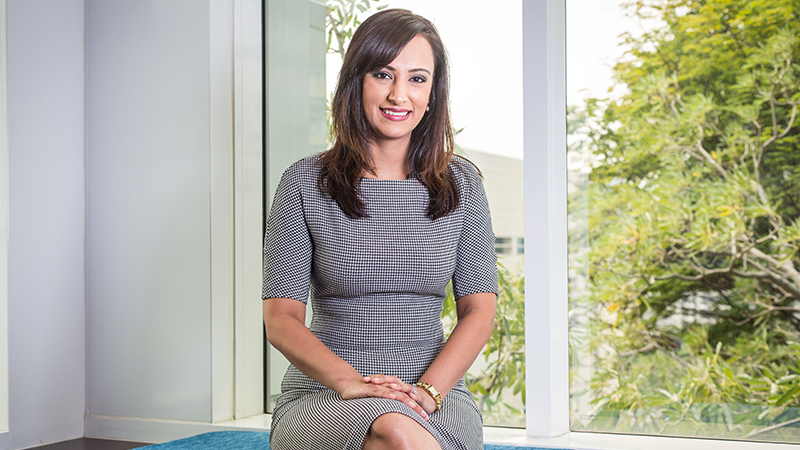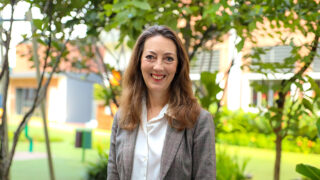Feelings of guilt around how we are parenting are stronger than ever for many people right now. Here, a clinical psychologist in Singapore explains the problems with parental guilt and shares her tips on how to best manage those feelings.
That shame you feel for sticking your toddler on their iPad for hours on end so you can do your day job; that weight you secretly bear from wanting your child back in school as soon as humanly possible; beating yourself up for not having your child FaceTime with Grandma more often? It seems those feelings have been especially rife among mums and dads during the pandemic.

What is parental guilt?
Parental guilt has been around for as long as people have had children. It’s that persistent, gnawing self reproach that starts the moment your child is born. Inundated with stories and “friendly” advice about what you should and shouldn’t be doing as a parent, you’re in a constant battle with yourself to live up to society’s perfect parent expectations. Of course, this idealisation is unrealistic; but you still keep striving for it, thanks to the constant voice in your head asking, “Where did I go wrong” or “Will my child be damaged because of what I did, or because of what I failed to do?”
Add a global pandemic into the mix, and those guilt ridden feelings that have tormented parents throughout the ages have reached new heights. In addition to the immense difficulty of working, parenting, keeping our kids stimulated and entertained, and, in some cases, teaching our children all at the same time, parents face daily decisions around health and safety while worrying about their family’s mental wellbeing round-the-clock. Sprinkle in some fears of what others think of us, our parenting choices and our children, and it’s a guaranteed recipe for gut-wrenching guilt.

DR SANVEEN KANG is a clinical psychologist and founder of Psych Connect. She helps families manage all kinds of mental health issues, and provides comprehensive psychological testing and therapy for kids as young as two years of age, up to early adult years. She says that now, more than ever, parental guilt around not doing or being enough for their children is high.
“Over the past year, life has been anything but stable,” she says. “Rapid changes in safety measures locally and globally, along with the experience of loss – from not being able to be present with loved ones overseas for special occasions to traumas like losing and grieving loved ones from a distance – has meant that parents and children are persistently having to adjust to change. Humans take time to adapt to change. As such, it’s safe to assume that some of us may not have had the chance to fully process and resolve the changes we’ve experienced over the past year.”
Additionally, many parents are feeling the pressure to keep up with or exceed the expectations or goals that they had set for themselves and their children. And social media certainly doesn’t help in that department.
“After the Circuit Breaker last year, I had many conversations with parents about the pressure to keep up,” says Dr Kang. “Everybody was trying to keep up with something; we saw surges of social media posts on today’s bakes, fancy meals that were being prepared, creative ideas on how to keep your children stimulated and fitness routines people were embarking on. While all of this was happening, lurking in the background was fear that we may have unknowingly unhurt or impaired our children’s development and future.”
The feeling of being responsible for meeting a child’s needs and not being able to do so, even when it’s not your fault, she says, stems from the fear that how we raise our children may impact their futures. This kind of guilt, however, will only hurt ourselves. “It’s persecutory in nature,” says Dr Kang. “That constant feeling that we are failing can easily be internalised in a way that’s not healthy. It then makes it harder for us to parent in the ways we want to parent.”
She says there is, however, a healthy kind of guilt, so it’s important to distinguish between the two. Whereas persecutory guilt is a form of self-inflicted punishment that results from a harsh and vindictive conscience, reparatory guilt is healthy.
“It prompts us to make amends and change certain behaviours. It’s that uncomfortable feeling you get when you know you have behaved inappropriately, hurt someone or caused a problem you could have avoided. Its purpose is to communicate to others and ourselves, and to nurture relationships with those we care about,” explains Dr Kang.
School holiday struggles and back-to-school guilt
When Singapore started to open back up last year, we began to see the return of the normal we once knew. But, that reality was short-lived. Now, with the return of heightened restrictions, there’s that continued desperation and self-judgement we just can’t seem to shrug off.
“We have come to understand that the goal posts – where life returns to normal – might always be moving. This realisation brought about more anxiety, as well as a sense of despair,” says Dr Kang. “Hence, some parents have fallen prey to what we are calling ‘pandemic fatigue’ or ‘pandemic burnout’.”
Now that we have the third big school holiday that children are stuck at home, parental guilt and overcompensation is in overdrive.
“For parents, the guilt of a lost childhood increases as children are complaining about being bored. I am seeing more and more children who are sharing that this is the worst summer ever,” says Dr Kang. “So, parents are feeling more pressured to find new ways to amuse their children; and they’re even feeling guilty about not enjoying their time with their children.”
Additionally, many mums and dads express looking forward to their kids returning to school. Not only are they exhausted from not being able to meet all the requests and expectations – even those they’ve set for themselves – but they also believe that “someone else can do a better job than me” – for example, a teacher.
While these guilt-inducing feelings are all too familiar right now, knowing how to cope with them can make all the difference, not just to your own sanity but also to the health of your family as a whole.
How to cope with your parental guilt
So, what can we do to remove that heaviness weighing over our heads? Dr Kang points to five key things that can help reduce or manage parental guilt.
#1 Embrace your feelings
Firstly, acknowledging your feelings and remembering you’re not alone can really go a long way.
“Recognise that guilt is an emotion, not a reality. Feelings are communicating something important to you. Listen to what they are telling you; these are clues into what you need right now. Rather than running away and focusing on what needs to change, take a little peek inside. Allow space for reflection and acceptance. Talking about feelings will also give you a new perspective on a situation.”
#2 Focus on the here and now
If living through a global crisis has taught us anything, it’s that we can’t control everything. Reminding yourself of how far you’ve come, patting yourself on the back for getting your kids to where they are now in one piece, and practising other similar mindfulness exercises can help shift your perspective to a more positive one.
“Take each day as it comes and focus on the lessons you have learned with each passing day. You may not always make the best decision but, given the current situation and the resources you have now, you have done the best that you can – and that is good enough.”
#3 Go easy on yourself
This means not beating yourself up if you’ve had a day where you didn’t have time to provide enriching educational activities, or if you’re letting your kids spend far more time on screens than you usually would.
“Expectations about what it means to be a good parent have evolved considerably in the past few decades. Children used to be largely responsible for entertaining themselves, and there was little talk of social-emotional learning. Our whole culture has shifted toward the importance of parents in promoting children’s healthy growth. Overall, that’s a positive development, but many parents now believe they should take on an unbearable level of responsibility.”
#4 Believe in the power of forgiveness
“Processing what you’ve lost or what has changed is easier when you’re guided by forgiveness. As stress mounts, we become angrier at ourselves and at others. If we hold on to anger, grudges and guilt, we’re out of balance and we might not make good choices. Forgiveness is how to get to a place of healing so we can be okay. Forgiving yourself is often just as important as forgiving others. It gives you the freedom to do as you intend.”
#5 Take care of yourself
Research shows that parents who stretch themselves too thin and then blame themselves when things go wrong are at risk of anxiety and depression – and, at times, poor parenting decisions. “Realise and believe that, to your children, you are amongst the most important members of their team. Therefore, it’s imperative that you must first be okay. If you’re okay, your children are okay.”
So, whether self-care for you means going on a 10-minute walk alone, practising yoga or reading two chapters of your book, it’s important to take care of yourself; you’ll be a better parent for it.
Head to expatliving.sg/health for Dr Kang’s tips on transitioning kids from school holidays to back-to-school learning from home.
Psych Connect
10 Winstedt Road, #03-07/12/13
6493 0244 | psychconnect.sg
This article first appeared in the August 2021 edition of Expat Living. You can purchase the latest issue or subscribe, so you never miss a copy!
Don't miss out on the latest events, news and
competitions by signing up to our newsletter!
By signing up, you'll receive our weekly newsletter and offers which you can update or unsubscribe to anytime.




